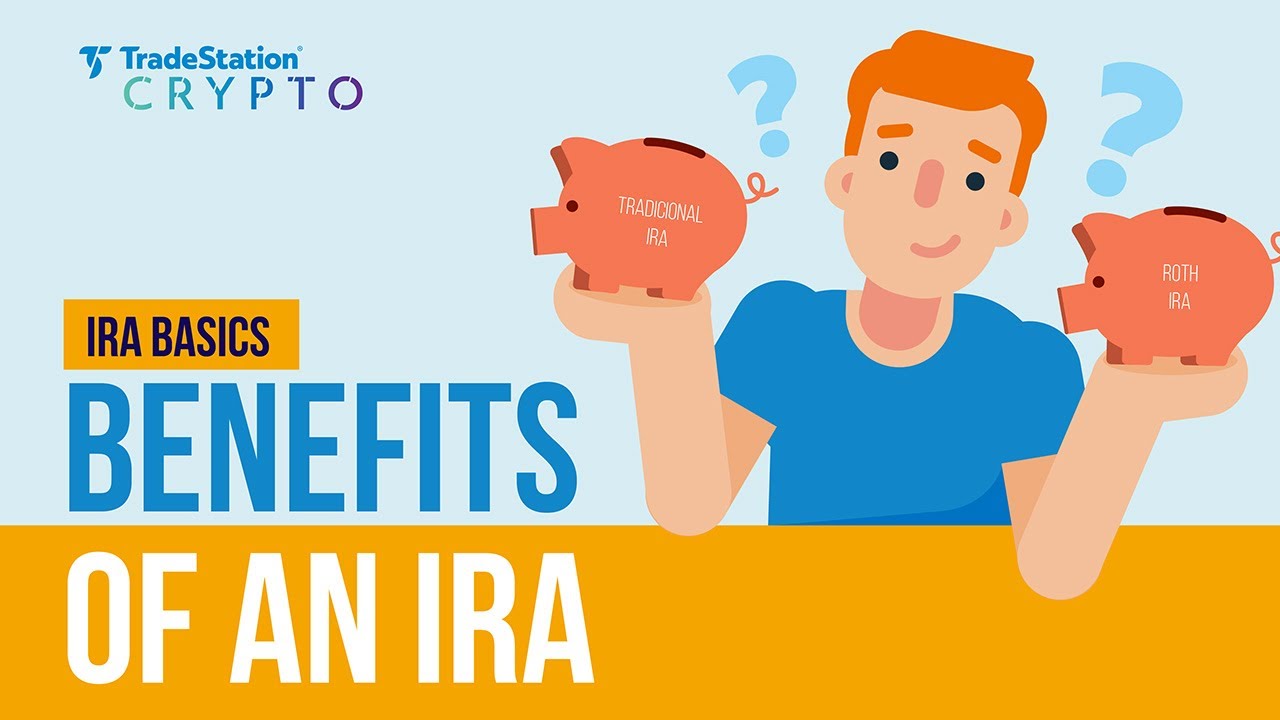The Wealth, and Benefits of an IRA Explained
Setting the Stage for Financial Success
In the dynamic landscape of personal finance, securing a stable future requires strategic planning. At the forefront of this planning stands the Individual Retirement Account (IRA), a powerful tool with multifaceted benefits. As we delve into the intricate advantages, the question arises: “What are the benefits of an IRA?” Let’s navigate through the financial terrain to uncover the wealth-building potential of this investment avenue.

Understanding IRA Basics
Types of IRAs
Navigating the world of IRAs begins with understanding the different types available. Two primary players, Traditional and Roth IRAs, each with distinct characteristics, offer individuals diverse pathways to financial growth. In the pursuit of financial knowledge, deciphering the nuances between these IRA types is key.
Contribution Limits and Rules
While the benefits of an IRA are abundant, knowing the rules of engagement is crucial. Contribution limits and eligibility criteria form the groundwork for effective IRA utilization. Whether you’re a seasoned investor or a newcomer, comprehending these rules ensures you maximize the advantages of this financial instrument.
Tax Advantages of IRAs
Tax-deferred Growth
One of the paramount benefits of Traditional IRAs is the concept of tax-deferred growth. As you contribute to your IRA, the invested funds grow without immediate tax implications. Unraveling the complexities of tax-deferred growth, we’ll explore how this feature becomes a cornerstone for accumulating wealth over time.
Tax-Free Withdrawals
Contrastingly, Roth IRAs offer a unique advantage with tax-free withdrawals during retirement. Understanding the intricacies of tax-free withdrawals provides a clear roadmap for individuals seeking tax-efficient strategies in their retirement years.
Investment Flexibility
Diverse Investment Options
Unlocking the full potential of an IRA involves understanding the spectrum of investment options available. From stocks and bonds to mutual funds, IRAs offer a diverse array of choices. Demystifying the world of investments within an IRA, this section guides you through the opportunities for optimizing your portfolio.
Self-Directed IRAs
For those seeking a hands-on investment approach, the concept of self-directed IRAs emerges. This section illuminates the advantages of self-directed IRAs, empowering investors to take control of their financial destiny and explore alternative assets.
IRA for First-Time Homebuyers and Education Expenses
Homeownership Benefits
Beyond retirement, an IRA can serve as a strategic tool for aspiring homeowners. This section illuminates how first-time homebuyers can leverage IRA funds, exploring the benefits and potential pitfalls. Navigate the landscape of homeownership with the added advantage of an IRA.
Education Savings
For those with educational aspirations, an IRA can also play a role in financing academic endeavors. Uncover the ways IRAs contribute to education savings, providing a financial edge for individuals or their loved ones seeking higher education.
Planning for Retirement
Retirement Income Stream
As individuals approach retirement, an IRA transforms into a reliable source of income. Explore how IRAs can be strategically utilized to create a steady income stream during retirement, ensuring financial stability in your golden years.
Frequently Asked Questions (FAQs) about the Benefits of an IRA
1. What is an IRA, and how does it work?
An Individual Retirement Account (IRA) is a tax-advantaged investment tool designed to help individuals save for retirement. It works by allowing you to contribute money to the account, where it can grow tax-deferred or tax-free, depending on the type of IRA.
2. What are the different types of IRAs, and how do they differ?
There are two primary types of IRAs: Traditional and Roth. Traditional IRAs offer tax-deferred growth, while Roth IRAs provide tax-free withdrawals in retirement. Understanding their differences helps you choose the one that aligns with your financial goals.
3. How much can I contribute to my IRA each year?
The contribution limits for IRAs can change annually. As of 2023, the maximum contribution limit is $6,000 for individuals under 50 and $7,000 for those 50 and older. These limits may be subject to income restrictions.
4. What are the tax advantages of having an IRA?
IRAs offer tax advantages such as tax-deferred growth for Traditional IRAs and tax-free withdrawals for qualified distributions in Roth IRAs. These benefits can optimize your tax strategy and enhance your overall financial plan.
5. Can I withdraw money from my IRA before retirement without penalties?
While IRAs are designed for retirement savings, certain circumstances allow penalty-free early withdrawals, such as first-time home purchases and qualified education expenses. However, taxes may still apply.
6. How does the investment flexibility of an IRA benefit me?
IRAs provide diverse investment options, including stocks, bonds, and mutual funds. This flexibility empowers you to tailor your portfolio to match your risk tolerance and financial objectives.
7. What is a self-directed IRA, and how does it differ from a traditional IRA?
A self-directed IRA allows you to have more control over your investment choices, including real estate and private placements. This contrasts with traditional IRAs, where investment options are typically managed by a financial institution.
8. Can an IRA help me with homeownership?
Yes, IRAs can assist first-time homebuyers. You can withdraw up to $10,000 from your IRA penalty-free for a qualified first-time home purchase. However, certain conditions and restrictions apply.
9. How does an IRA contribute to education savings?
IRAs can be used to cover qualified education expenses. While not as common as dedicated education savings accounts, IRAs offer an additional avenue for funding education costs.
10. What steps should I take to start an IRA?
Starting an IRA involves selecting the type of IRA that suits your needs, choosing a financial institution, and opening an account. Consulting with a financial advisor can help you navigate this process and make informed decisions.
Conclusion
In the intricate landscape of personal finance, an IRA emerges as a beacon of financial empowerment. As we wrap up our exploration into the myriad benefits of an Individual Retirement Account, it’s evident that this financial tool is not just about retirement—it’s about crafting a secure and prosperous future. Seize the opportunity to build wealth, mitigate tax implications, and shape a financial trajectory that aligns with your goals.




